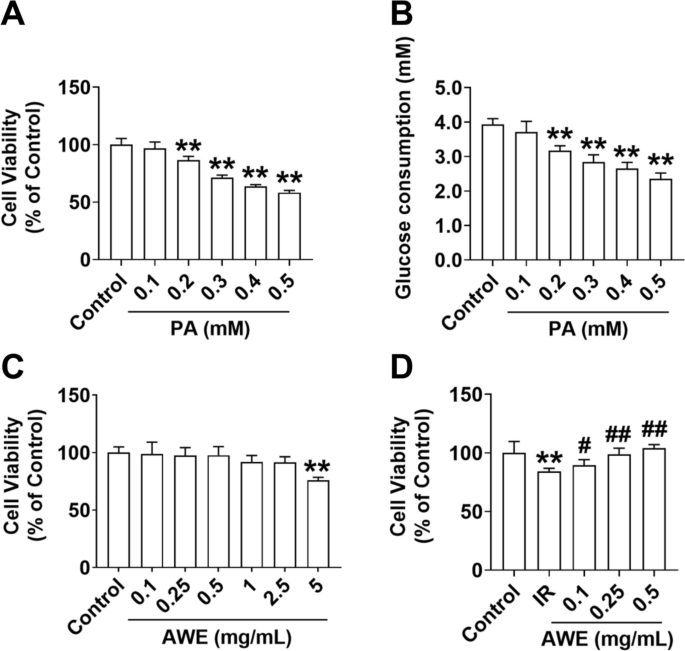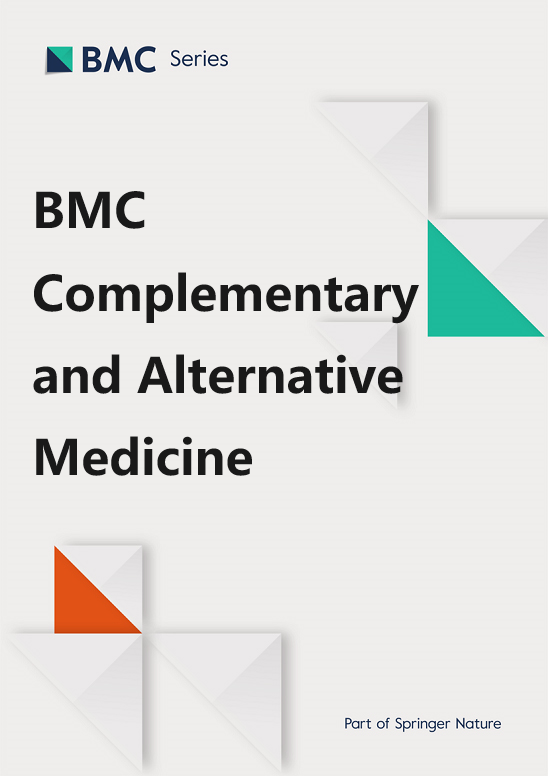朝鲜蓟(Cynara scolymus L.)水提取物通过激活 IRS1/PI3K/AKT/FoxO1 和 GSK-3β 信号通路减轻棕榈酸酯诱导的 HepG2 肝细胞胰岛素抵抗
IF 3.4
2区 医学
Q1 Medicine
引用次数: 0
摘要
朝鲜蓟(Cynara scolymus L.)是传统地中海饮食的典型成分,对胰岛素抵抗(IR)和 2 型糖尿病(T2DM)具有潜在的健康优势。本研究旨在评估朝鲜蓟水提取物(AWE)对棕榈酸酯(PA)诱导的人肝细胞癌(HepG2)细胞 IR 的影响及其内在机制。使用 CCK8 检测法确定 AWE 对细胞活力的影响。评估了 AWE 处理后细胞的葡萄糖摄取、葡萄糖消耗、葡萄糖生成和糖原含量。基因表达和蛋白质水平通过实时聚合酶链反应(qRT-PCR)和免疫印迹法进行检测。结果表明,AWE 剂量依赖性地提高了 IR HepG2 细胞的存活率(P < 0.01)。AWE 处理可明显促进 IR HepG2 细胞对葡萄糖的摄取和消耗,减少葡萄糖的产生,并增加细胞糖原含量(P < 0.01)。从机理上讲,AWE 提高了 IR HepG2 细胞中主要胰岛素信号分子的磷酸化水平和总蛋白水平,导致 IR HepG2 细胞中磷酸烯醇丙酮酸羧激酶(PEPCK)和葡萄糖-6-磷酸酶(G6Pase)的表达减少,糖原合成酶(GS)的磷酸化受到抑制。此外,AWE 对 IR HepG2 细胞的保护作用可能是由于抑制了内质网(ER)应激。我们得出的结论是,AWE 可通过调节 IRS1/PI3K/AKT/FoxO1 和 GSK-3β 信号传导来改善葡萄糖代谢,这与 PA 诱导的 IR HepG2 细胞的 ER 应激抑制有关。本文章由计算机程序翻译,如有差异,请以英文原文为准。

Artichoke (Cynara scolymus L.) water extract alleviates palmitate-induced insulin resistance in HepG2 hepatocytes via the activation of IRS1/PI3K/AKT/FoxO1 and GSK-3β signaling pathway
Artichoke (Cynara scolymus L.) is a typical element of a traditional Mediterranean diet and has potential health advantages for insulin resistance (IR) and type 2 diabetes mellitus (T2DM). This study aims to evaluate the effect and underlying mechanism of artichoke water extract (AWE) on palmitate (PA)-induced IR in human hepatocellular carcinoma (HepG2) cells. The effect of AWE on cell viability was determined using CCK8 assay. Cellular glucose uptake, glucose consumption, glucose production, and glycogen content were assessed after AWE treatment. The gene expression and protein levels were examined by real-time polymerase chain reaction (qRT-PCR) and western blotting. The results showed that AWE dose-dependently increased cell viability in IR HepG2 cells (P < 0.01). AWE treatment significantly promoted glucose uptake and consumption, decreased glucose production, and increased the cellular glycogen content in IR HepG2 cells (P < 0.01). Mechanistically, AWE elevated the phosphorylation and total protein levels of major insulin signaling molecules in IR HepG2 cells, which resulted in a decrease in the expression of phosphoenolpyruvate carboxykinase (PEPCK) and glucose-6-phosphatase (G6Pase) and the inhibition of glycogen synthase (GS) phosphorylation in IR HepG2 cells. Furthermore, the protective effect of AWE on IR HepG2 cells might be ascribed to the inhibition of the endoplasmic reticulum (ER) stress. We conclude that AWE may improve glucose metabolism by regulating IRS1/PI3K/AKT/FoxO1 and GSK-3β signaling associated with the inhibition of ER stress in IR HepG2 cells induced by PA.
求助全文
通过发布文献求助,成功后即可免费获取论文全文。
去求助
来源期刊

BMC Complementary and Alternative Medicine
INTEGRATIVE & COMPLEMENTARY MEDICINE-
CiteScore
7.00
自引率
0.00%
发文量
0
审稿时长
3 months
期刊介绍:
BMC Complementary Medicine and Therapies is an open access journal publishing original peer-reviewed research articles on interventions and resources that complement or replace conventional therapies, with a specific emphasis on research that explores the biological mechanisms of action, as well as their efficacy, safety, costs, patterns of use and/or implementation.
 求助内容:
求助内容: 应助结果提醒方式:
应助结果提醒方式:


